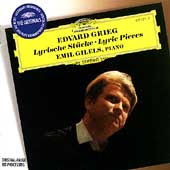Sibelius – his genius remains unrecognised
 The history of the rise of Sibelius in the good opinion of the fashionable intelligence makes an interesting story. Thirty years ago he was known in the parks, around the bandstands, as the composer of ‘Finlandia’; at concerts he was occasionally represented on the less austere evenings by the ‘Valse Triste’. Outside Finland a few musicians had studied the scores of the First and the Second of the symphonies; and the one in E minor was confidently supposed to be written in the manner and idiom of Tchaikovsky. Not until after the war of 1914-1918 was Sibelius taken up by the best people of Great Britain and America; on the continent in general his genius remained (and remains) more or less unacknowledged or unrecognised.
The history of the rise of Sibelius in the good opinion of the fashionable intelligence makes an interesting story. Thirty years ago he was known in the parks, around the bandstands, as the composer of ‘Finlandia’; at concerts he was occasionally represented on the less austere evenings by the ‘Valse Triste’. Outside Finland a few musicians had studied the scores of the First and the Second of the symphonies; and the one in E minor was confidently supposed to be written in the manner and idiom of Tchaikovsky. Not until after the war of 1914-1918 was Sibelius taken up by the best people of Great Britain and America; on the continent in general his genius remained (and remains) more or less unacknowledged or unrecognised.The remarkable fact is that the more bald and taciturn Sibelius’s music became, the more and more his public grew in the places where it was played at all. The critics and the coteries of London were condescending about the First and Second symphonies, in which he exploits spacious tunes and strong and palpable and far-flung rhythms. It was only after he had pared his music down to the bone and adopted the aspect of aloof austerity that he interested the post-1918 leaders of what is what in the arts. Then the gramophone companies surprisingly ventured on his symphonies, all of them, even the grim and forbidding Fourth. Sibelius the swooning voluptuary of the ‘Valse Triste’; Sibelius the military-band rhetorician of ‘Finlandia’; and Sibelius the big-fisted and big-chested extravert of the E minor symphony lived to see himself drawn in as a heavy reinforcement to aid the reaction against romanticism.
Neville Cardus, celebrated music critic of the then Manchester Guardian, writes in 1944, at a time when music critics were wordsmiths rather than HTML wizards.
 In 2007 we celebrate important anniversaries for both Jean Sibelius and Edvard Grieg. By a strange coincidence these two Scandinavians died almost exactly fifty years apart, Sibelius on September 20th 1957 and Grieg (right) on September 4th 1907. Sibelius’ lifespan was extraordinary. He was born in 1865, the year when the American Civil war ended. He did not compose at all for the last thirty years of his life, and when he died in 1957 the Korean War had been ended for four years, and Elvis Presley’s Heartbreak Hotel had sold more than a million copies.
In 2007 we celebrate important anniversaries for both Jean Sibelius and Edvard Grieg. By a strange coincidence these two Scandinavians died almost exactly fifty years apart, Sibelius on September 20th 1957 and Grieg (right) on September 4th 1907. Sibelius’ lifespan was extraordinary. He was born in 1865, the year when the American Civil war ended. He did not compose at all for the last thirty years of his life, and when he died in 1957 the Korean War had been ended for four years, and Elvis Presley’s Heartbreak Hotel had sold more than a million copies.Let me make my own position on Sibelius clear. I stood in the grounds of Sibelius' house in Järvenpää and heard the beating of the swans' wings, and I felt the force - give me one bar of Sibelius for one symphony of Shostakovich. And for those who think the music of Sibelius and Grieg is just Scandinavian bombast here are three thought provoking CDs for their anniversary year.
 * Edvard Grieg – Lyric Pieces played by Emil Gilels. These pieces are often thought to be the province of children and music teachers, but these juvenile connotations are quite wrong. These exquisite piano miniatures combine lyricism with a deep maturity, and Gilels 1974 recording made in Berlin by legendary DG producer Gunther Breest is a classic of the gramophone.
* Edvard Grieg – Lyric Pieces played by Emil Gilels. These pieces are often thought to be the province of children and music teachers, but these juvenile connotations are quite wrong. These exquisite piano miniatures combine lyricism with a deep maturity, and Gilels 1974 recording made in Berlin by legendary DG producer Gunther Breest is a classic of the gramophone. * Jean Sibelius – Works for String Orchestra played by Ostrobothnian Chamber Orchestra conducted by Juha Kangas. A wonderful selection of little known Sibelius including incidental music for the stage and his little Suite in D Minor for violin and strings. The Suite lasts for less than eight minutes, but it is tremendously important. It was composed in 1929, five years after the Seventh Symphony. Soon after writing the Suite Sibelius the composer fell silent, although he continued to work on the Eighth Symphony in secret. The Eighth disappeared in the flames of the composer’s self-criticism, which at least spares us a BBC commissioned completion for the 2007 Proms.
 * Joan Baez - Bowery Songs. This live album is a the product of the 2004 Presidential election. As conventioneering and electioneering fever grew more heated in the US Michael Moore's Fahrenheit 9/11 stirred the pot, and Baez joined Rage Against The Machine's Tom Morello for the West Coast leg of Moore's 'Slacker Uprising Tour.' For the opening track of the live album Baez sings an a cappella version of Finlandia to which she has added her own words which start with: "This is my song, a song of peace for lands afar and mine." Sibelius composed Finlandia to express his opposition to Russian influence over Finland, and his hymn to peace remains as relevant today as it was in 1899.
* Joan Baez - Bowery Songs. This live album is a the product of the 2004 Presidential election. As conventioneering and electioneering fever grew more heated in the US Michael Moore's Fahrenheit 9/11 stirred the pot, and Baez joined Rage Against The Machine's Tom Morello for the West Coast leg of Moore's 'Slacker Uprising Tour.' For the opening track of the live album Baez sings an a cappella version of Finlandia to which she has added her own words which start with: "This is my song, a song of peace for lands afar and mine." Sibelius composed Finlandia to express his opposition to Russian influence over Finland, and his hymn to peace remains as relevant today as it was in 1899.Here is Joan Baez's (or rather Lloyd Stone's) unique take on Sibelius:
Now read an American critic’s opinion of Sibelius in Pliable’s Path
Neville Cardus quote from Ten Composers published by Jonathan Cape, 1945. Audio sample linked from Joan Baez.com. Any copyrighted material on these pages is included for "fair use", for the purpose of study, review or critical analysis only, and will be removed at the request of copyright owner(s). Report broken links, missing images and other errors to - overgrownpath at hotmail dot co dot uk








Comments
another excellent blog:
Amen
Pliable has it right: "... give me one bar of Sibelius for one symphony of Shostakovich."
I'll go one further: If we had walked away from the 20th century with only the scores to the Fourth and Seventh Symphonies of Sibelius, we'd still be left with sufficient material to reconstruct everything essential that had been left behind.
I'd heard several of his pieces on recordings as a teenager, but Sibelius' The Swan of Tuonela was the first piece I ever heard of his live (programmed by the Nashville symphony alongside a Grieg piano concerto and a Herbert Howells symphony), and it grabbed me by the heart. There may be other composers who contributed more to theory and composition, but not, I think, to music.